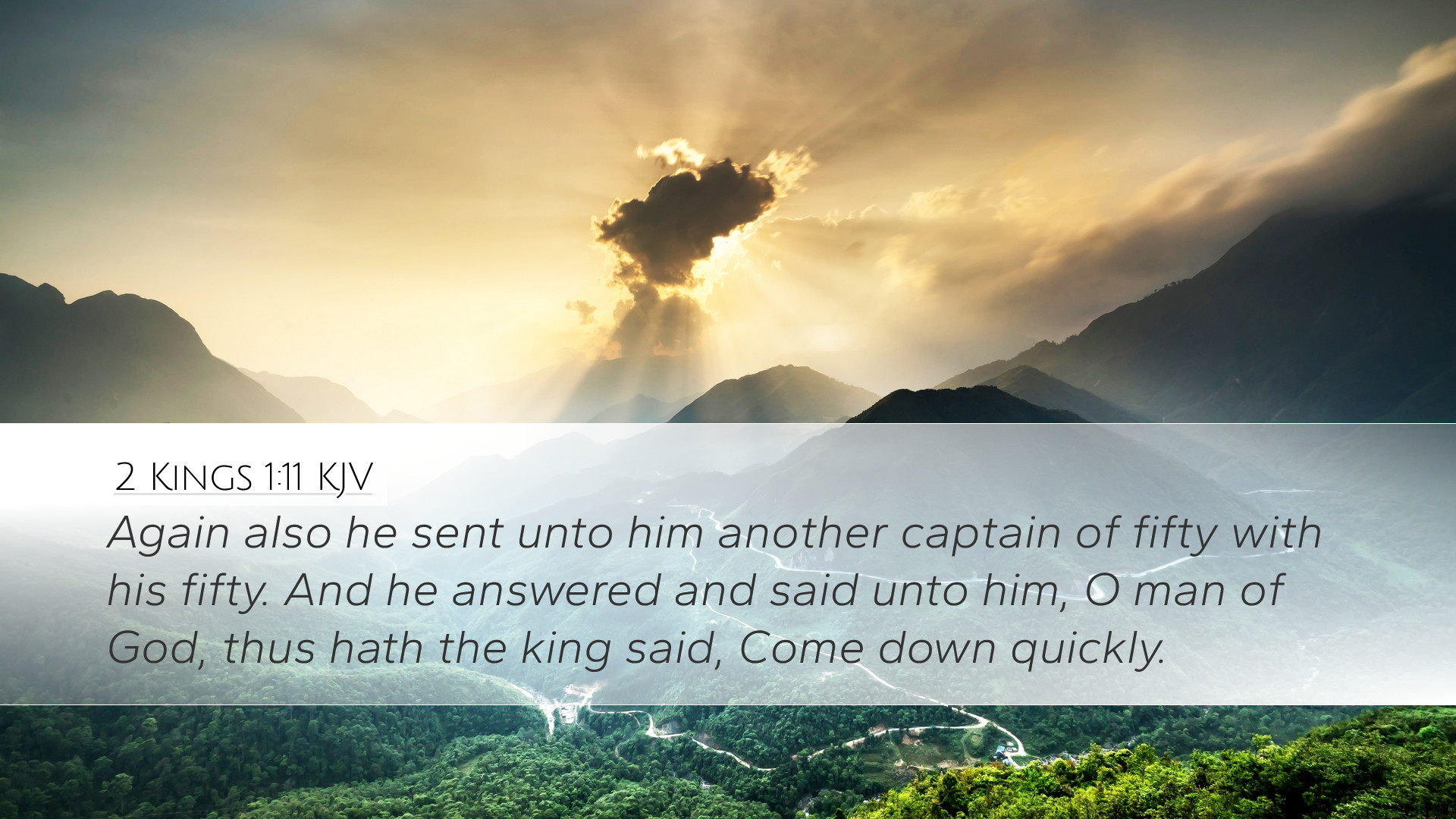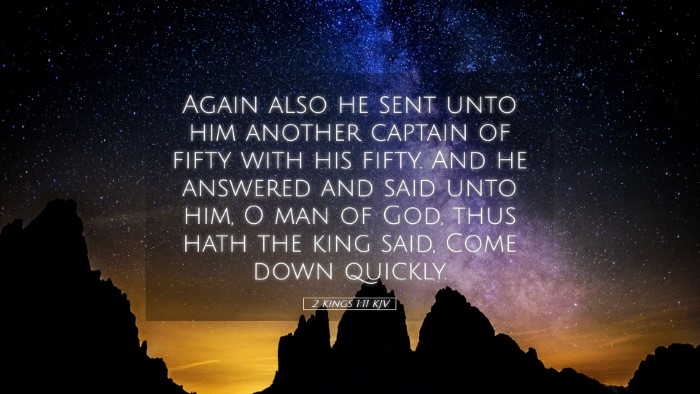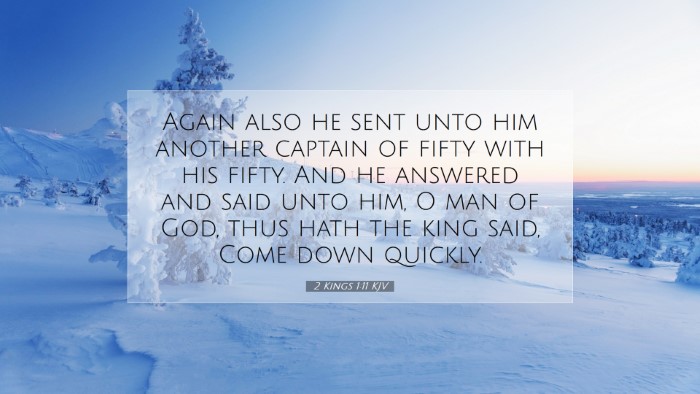Old Testament
Genesis Exodus Leviticus Numbers Deuteronomy Joshua Judges Ruth 1 Samuel 2 Samuel 1 Kings 2 Kings 1 Chronicles 2 Chronicles Ezra Nehemiah Esther Job Psalms Proverbs Ecclesiastes Song of Solomon Isaiah Jeremiah Lamentations Ezekiel Daniel Hosea Joel Amos Obadiah Jonah Micah Nahum Habakkuk Zephaniah Haggai Zechariah Malachi2 Kings 1:11
2 Kings 1:11 KJV
Again also he sent unto him another captain of fifty with his fifty. And he answered and said unto him, O man of God, thus hath the king said, Come down quickly.
2 Kings 1:11 Bible Commentary
Commentary on 2 Kings 1:11
Verse Reference: 2 Kings 1:11 - "Again also he sent unto him another captain of fifty with his fifty. And he answered and said unto him, O man of God, thus hath the king said, Come down quickly."
Introduction
The passage of 2 Kings 1:11 is a pivotal moment that showcases the conflict between divine authority and human power. In this scripture, we observe an instance where King Ahaziah of Israel sends soldiers to apprehend the prophet Elijah, demonstrating a profound disregard for God's messengers and their role in conveying divine will. Through the insights of Matthew Henry, Albert Barnes, and Adam Clarke, we can gain a deeper understanding of the motivations, implications, and theological significance behind this encounter.
Contextual Background
The historical context of this verse is critical for understanding its significance. King Ahaziah, following his fall, seeks counsel from Baal rather than Yahweh, which reflects a spiritual decline in Israel. This sets the stage for the confrontation with Elijah, a prophet representing the true God.
King Ahaziah's Actions
- Dependent on False Deities: Ahaziah's inquiry to Baal-Zebub about his recovery indicates a rejection of the God of Israel, exemplifying the common problem of idolatry in Israel (Barnes).
- A Challenge to God’s Authority: By sending a captain to seize Elijah, Ahaziah not only disrespects Elijah as a prophet but also directly challenges the authority of God Himself (Henry).
The Captain's Message
The proclamation from the captain of fifty to Elijah, referring to him as "O man of God," acknowledges Elijah’s prophetic office, yet it comes with a demand rather than reverence. This juxtaposition illustrates the tension between earthly power and heavenly authority.
A Prophetic Life Under Persecution
- Elijah's Role: Elijah stands firmly as a representative of God, a point made clearly by Clarke who notes that his title “man of God” signifies not only his prophetic identity but also his allegiance to the true deity.
- Response to Authority: The captain's admonition to "come down quickly" reflects the urgency of Ahaziah’s command, yet it is laced with a lack of understanding of who Elijah truly is (Barnes).
Theological Implications
This verse raises significant theological themes relevant to pastors, theologians, and scholars alike:
Divine Judgment vs. Human Authority
- God's Sovereignty: Elijah's presence illustrates God’s active involvement in the affairs of men, asserting that human rulers are ultimately subject to divine authority (Henry).
- Resistance to God: Ahaziah’s actions serve as a warning against the futility of opposing God's purposes. The dynamics of heaven and earth reveal that rebellion against God leads to unavoidable judgment (Clarke).
The Role of Prophets
- Speaking Truth to Power: This passage highlights the prophetic mission to confront sin and idolatry, serving as an example for modern ministers regarding the necessity of standing firm in faith irrespective of societal pressures (Barnes).
- Faithfulness Under Fire: Elijah’s subsequent actions serve as encouragement for believers today to remain steadfast, trusting in God's protection and purpose even amidst opposition (Henry).
Conclusion
In summary, 2 Kings 1:11 illustrates the enduring conflict between divine authority and human arrogance. Through the words of Henry, Barnes, and Clarke, we see how this narrative offers rich theological insights relevant for contemporary readers. As we reflect on this engagement, it is crucial for leaders and congregants alike to recognize the sovereign reign of God over all circumstances and to value the voices of His messengers who call us to a higher standard of righteousness and faith.


